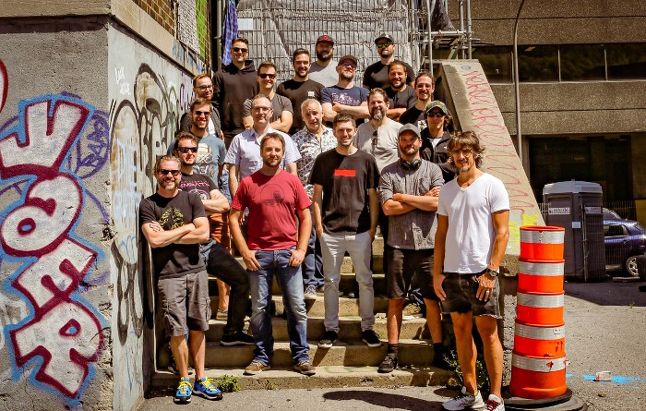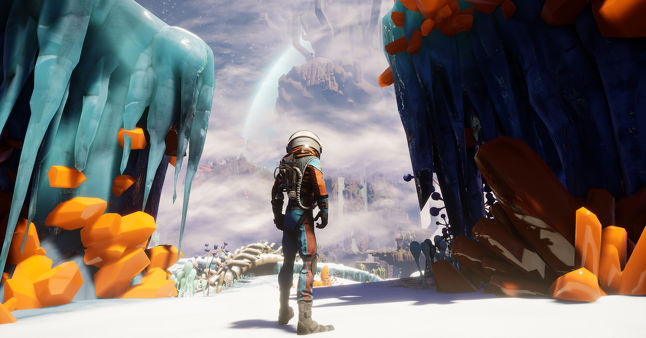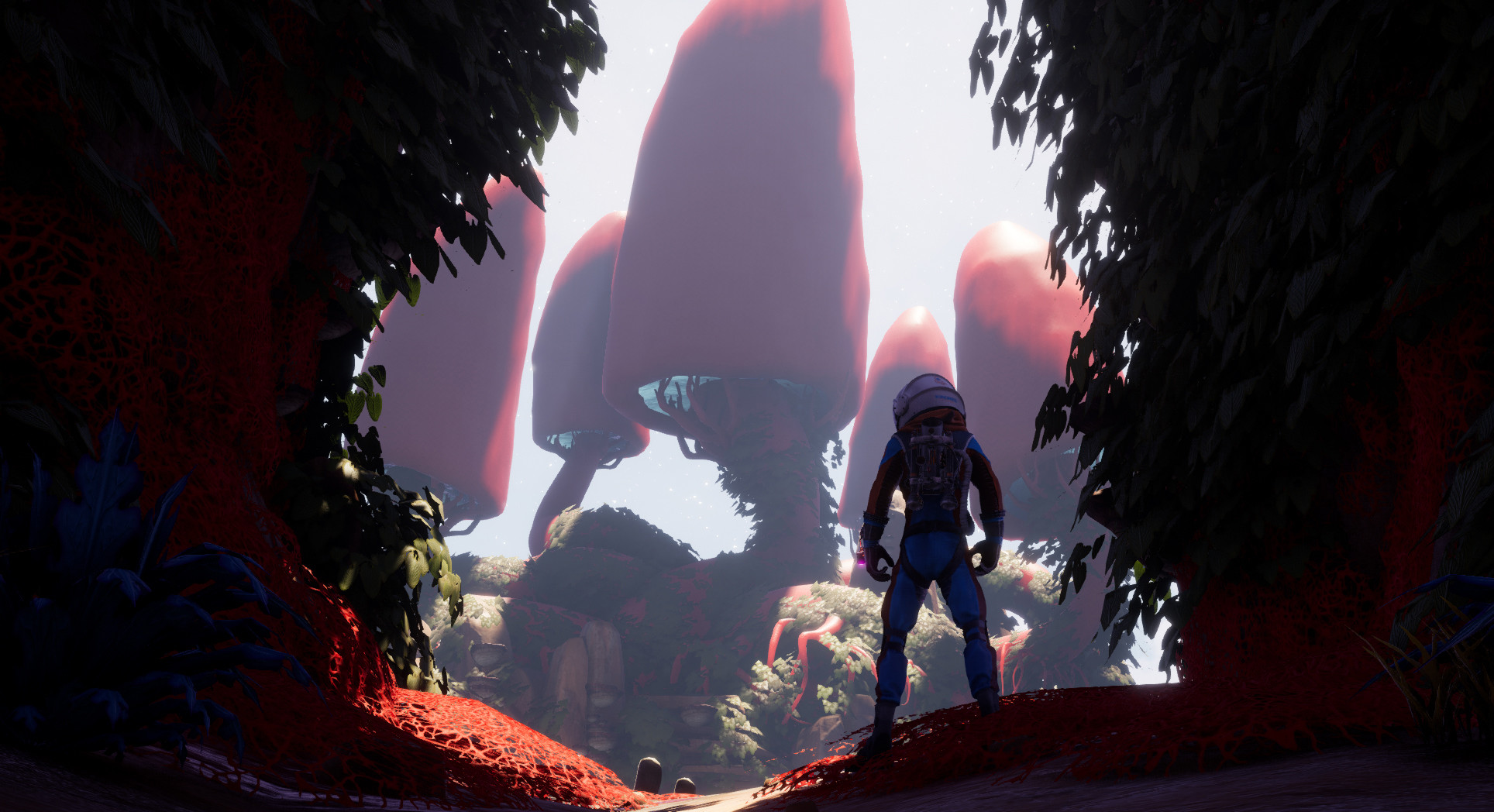From time to time, there are interesting bits from our interviews that don’t really fit well into the rest of the story, but are still worth reporting. Rather than relegating them to the trash bin of unpublished work, we like to repackage them into columns intended to provide additional insight on a variety of topics. These columns are published under the banner of ‘DLC’.
Yesterday’s announcement of Raccoon Logic, the new Montreal-based developer from the team behind Typhoon Studios, was perhaps not as well received as the founders might have hoped.
The news garnered plenty of coverage, including a full interview right here on GamesIndustry.biz, but over on social media the new company drew criticism over the make-up of its team. Can you work out why?

Startups dominated by white men are not exactly uncommon in the games industry, but at a time where it is impossible to ignore the unequal treatment of women and other marginalised folks in the wake of the Activision Blizzard lawsuit, this sort of group shot does nothing to assuage concerns around the industry’s lack of diversity and deeply embedded ‘bro culture.’
In the original interview, we asked Raccoon Logic’s Reid Schneider how the studio plans to build a better culture, especially given the majority of the team are ex-AAA developers — and, as recent news has shown, simply leaving AAA does not leave the problem behind, even when moving into the indie space.
However, this section was cut for length which, in retrospect was a mistake, so we now present the response here.
Schneider talked of his role in looking after the team, emphasising the need for respect and kindness between colleagues, but also assured that any inappropriate conduct will be dealt with.
“There’s responsibility on the founders and the leads to set the pace. If we don’t act in a way that sets the standard, it’s a tacit approval of bad behaviour”
Reid Schneider, Raccoon Logic
“You have to be super vigilant about it and careful,” he told GamesIndustry.biz in our original interview. “We take a very careful approach at hiring, and Typhoon worked as a test run for ‘who’s just a good human being, and who’s not?’ Unfortunately, I don’t think there’s any magic bullets but I do think there’s responsibility on the founders and the leads to set the pace. If we don’t act in a way that sets the standard, it’s a tacit approval of bad behaviour.”
He added that this is part of why the studio intends to stay small. Raccoon Logic currently stands at around 20 people, with mention of at least one woman — a producer — brought on board. (The studio has since explained that she was unable to attend the photoshoot due to travel restrictions during the pandemic.)
In contrast, Schneider and several team members recall working on teams of 200 to 300 people at major games firms like Warner Bros. and Ubisoft, where misconduct was harder to isolate and stamp out.
“When you’re working on teams that large, you don’t know what everyone’s doing all the time, so things can spiral out of control really quickly,” says Schneider. “Whereas with 30 people, if someone fucks up, you call them out right away and tell them ‘that’s not okay.’
“We need as leadership to hold ourselves to a very high standard, and be vigilant and mindful about what people are doing so when someone gets out of line, you correct it quickly and you don’t let it fester. When it festers, that’s when it becomes a cultural norm in your company.”
To that end, we also asked about the use of the word “Savage” in the game’s title, which has a long history as a slur for Indigenous people, and whether the team had considered changing it. (As a studio based in Montreal, Raccoon Logic should be well familiar with the issue, given the Canadian government’s admission of genocide against Indigenous people.)
“It’s something we talked about,” said Schneider. “Our feeling on it was that we were using it as an adjective, not a noun. We were looking at it through that lens. If you say it like, ‘We’re going to colonise the New World of savages’ — that’s obviously completely inappropriate. That’s not cool at all. We were looking at it as a way to evoke that ‘pulpy’ nature [of old science fiction], which is something we really like.
“It’s really about looking at the nuance of something and not just cancelling it just because something there is not… y’know, actually have a discussion about it and why we’re doing something in a certain way instead of a blanket, ‘No, that’s bad.'”

Raccoon Logic said there are no plans to change the name of its sci-fi IP, Journey to the Savage Planet
Fellow co-founder and creative director Alex Hutchinson confirmed via Twitter that the studio is hiring, and looking for more diverse recruits. However, this information only emerged as he responded to criticism over the lack of diversity in his studio.
“We were using it as an adjective, not a noun. If you say it like, ‘We’re going to colonise the New World of savages’ — that’s obviously completely inappropriate”
Reid Schneider, Raccoon Logic
Criticism around the new studio also isn’t helped by the fact that Hutchinson has become something of a controversial figure over the years due to some of his statements, such as the decision to cut playable women from Far Cry 4 co-op because it would have been too much work and the suggestion that journalists give Japanese developers an easy ride due to “subtle racism.” Former employer Google even distanced itself from his claims that streamers should pay developers and publishers for the games they play when broadcasting.
GamesIndustry.biz has since reached out to Raccoon Logic for more information on their hiring practices and received the following statement:
“Recruitment and interviews are something that took time and is an ongoing process so it would important to contextualise that announcing the opening of the studio is not the point of arrival but the point of start where we will expand and continue in promoting diversity of opinion and expression in different form in the most open possible way (gender, race, sexual orientation and religion above others).
“The studio is here and is open to everyone to apply without any sort of discrimination. We can confirm, we interviewed multiple female candidates for our production leadership position and ultimately hired a woman. We also did interview BIPOC people for our other open positions, and look forward to hiring more.”
However, the backlash — to both the photo and Hutchinson’s response — are likely to hurt the studio’s ability to fix the diversity issue it has created for itself. Especially as another Montreal startup announced this week, Monster Closet, managed to avoid the same problem.
While Monster Closet and its all-male team of five founders is not a gold standard to live up to, the fact they have managed to form a studio where a quarter of all staff are women is at least a more promising step towards starting a diverse business. Read our full interview with Monster Closet here.
Why the Hotline helps those who harm
As Anita Sarkeesian told us last year, the Games and Online Harassment Hotline has been open to everyone — not just industry professionals, but also members of the gaming community who have been harassed in-game.
It has also been open to the people who have directly caused harm or been accused of it. While the team was not sure whether any would text or call in, hotline director Jae Lin told us in our recent interview that it soon became apparent this was something the team would indeed have to handle.
“Of course, as a survivor-centred service, we had to really figure out a way to do that where it was still holding that accountability space,” they say. “That was definitely a learning experience, figuring out how and why we help those people.
“We see this as an opportunity to hold the door open for change. We really see the problem of harassment and toxicity as an ecosystem, a cultural problem. It’s not the problem of bad apples, we don’t want to punish or exclude even people who have caused harm when they reach out for support or help.
“They were being very vulnerable with us, sharing these mistakes they’ve made and regrets they have. They’re asking for help, so how do we show up to them in a way that holds that door open for change while still holding that accountability, being survivor-centric.
“We do things like offering emotional support and validation without necessarily endorsing or affirming the behaviour or thought processes around things. We try to divert further support seeking away from directly impacted folks — where else could they go for support? And we really explore that space with them, holding that accountability but wanting them to feel like they’re not alone, that if they change it will matter, and that we care and are here for them.”
You can read more about the Hotline’s first year, plus Lin’s advice on how games professionals at any level of a company can help stamp out toxicity, in our full interview.
GamesIndustry.biz
Source link
Related Post:
- First Official Resident Evil Movie Reboot Photos Of 'Welcome To Raccoon City' And New Details Revealed
- Life after Stadia: Raccoon Logic picks up where Typhoon Studios left off
- Expect more Journey to the Savage Planet as shuttered dev Typhoon Studios reforms as Raccoon Logic • Eurogamer.net
- Here's Your First Horrifying Look at Resident Evil: Welcome to Raccoon City
- Lisa Trevor Plays 'Pivotal Role' in Resident Evil: Welcome to Raccoon City
- Resident Evil: Welcome To Raccoon City Movie Director On Casting Decisions
- Insights about diversity and inclusion from Take-Two's E3 2024 panel
- How to get a job as a diversity and inclusion officer
- The GamesIndustry.biz Academy Jobscast: Recruitment and diversity
- How did the pandemic impact diversity, equity, and inclusion in the industry?
